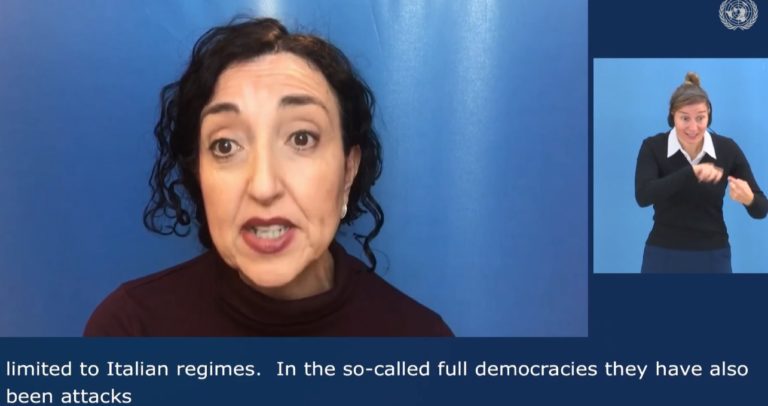
The Catalan National Assembly has taken part in the 15th session of the United Nation’s Forum on Minority Issues to denounce the repression of Catalans by the Spanish authorities and the European Union’s double standards.
The Catalan Assembly has taken part in the 15th session of the United Nation’s forum on Minority Issues that took place on the 1st and 2nd December in Geneva, on the 30th anniversary of the UN Declaration on Minority Rights. The organisation has called on the UN authorities to establish talks with the European Union regarding the violation of minority rights in member states.
Assemblea’s board member Imma Cabotí denounced that minority human rights defenders face attacks and repression, even in so-called “full democracies” such as Spain, against the peaceful and democratic Catalan pro-independence movement. This uncontested repression is encouraging others states such as Turkey, China, and Russia, that “are using Spain as an example of how to crush their minorities and political dissidence with impunity”, she added.
With Catalonia’s 2017 referendum on independence, the Spanish authorities unleashed a huge wave of repression. Police officers attacked voters violently, peaceful activists were jailed, and political dissidents were spied on, along with their families and even their lawyers. And thousands of Catalan activists that took to the streets to denounce the repression are now facing jail sentences.
This disproportionate response by Spain sets a dangerous precedent and creates a chilling effect on human rights defenders worldwide In fact, according to a recently published report by the Unrepresented Nations and Peoples Organization, the influence and impact that the Spanish authorities’ repression of the Catalan pro-independence movement has had on other governments trying to silence activists of stateless nations around the world.
Several international organisations such as the UN and the Council of Europe, and NGOs like Amnesty International, have denounced the violations of fundamental rights by Spanish authorities. However, Spain has persuaded the European Union to treat it as a purely domestic affair. This endangers the EU’s credibility, as lecturing on minority rights abroad while accepting violations within a member state can be seen as hypocritical.
Assemblea regularly takes part in international human rights meetings and forums as part of its international advocacy actions, and to denounce violations of rights by Spanish institutions against the people of Catalonia.